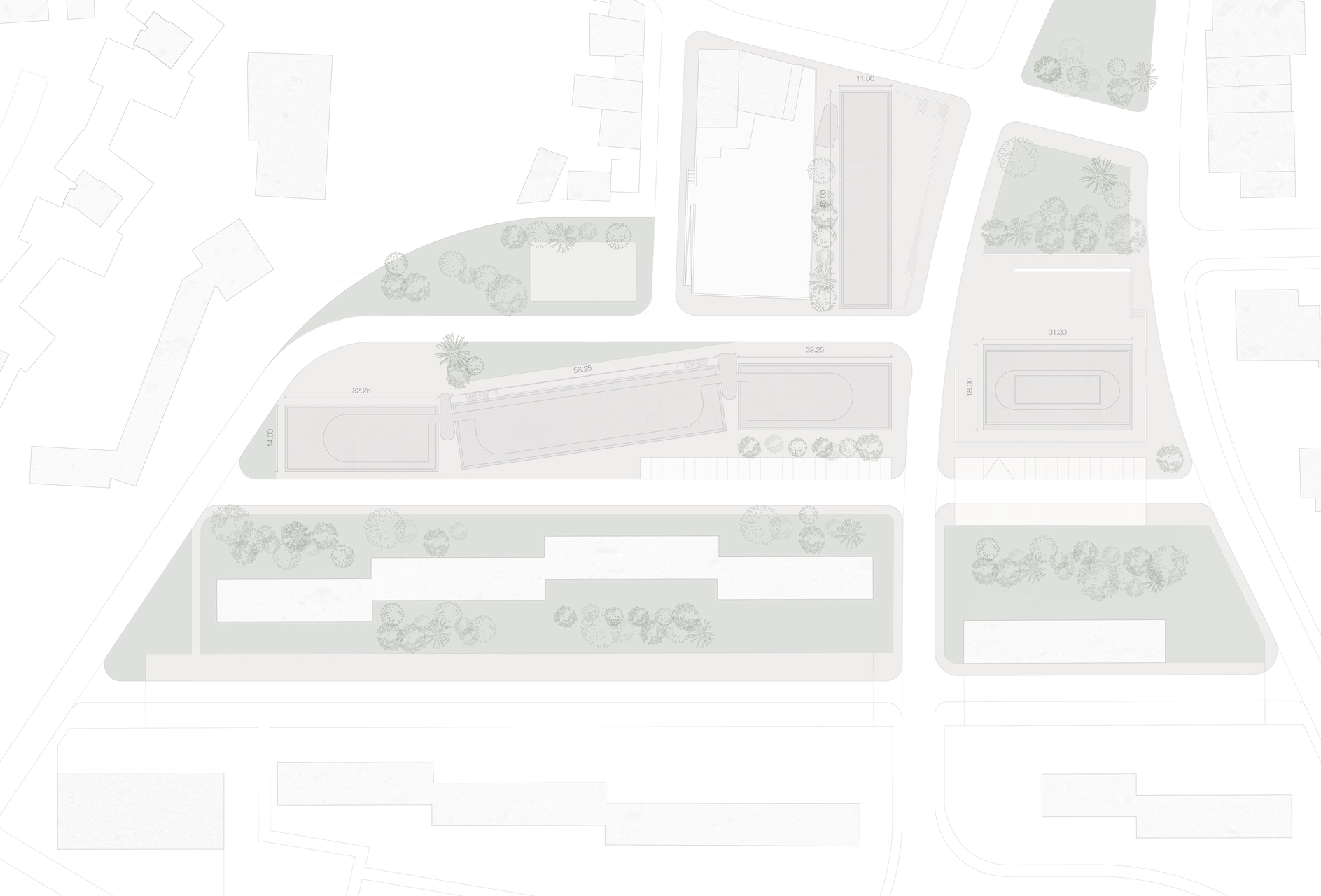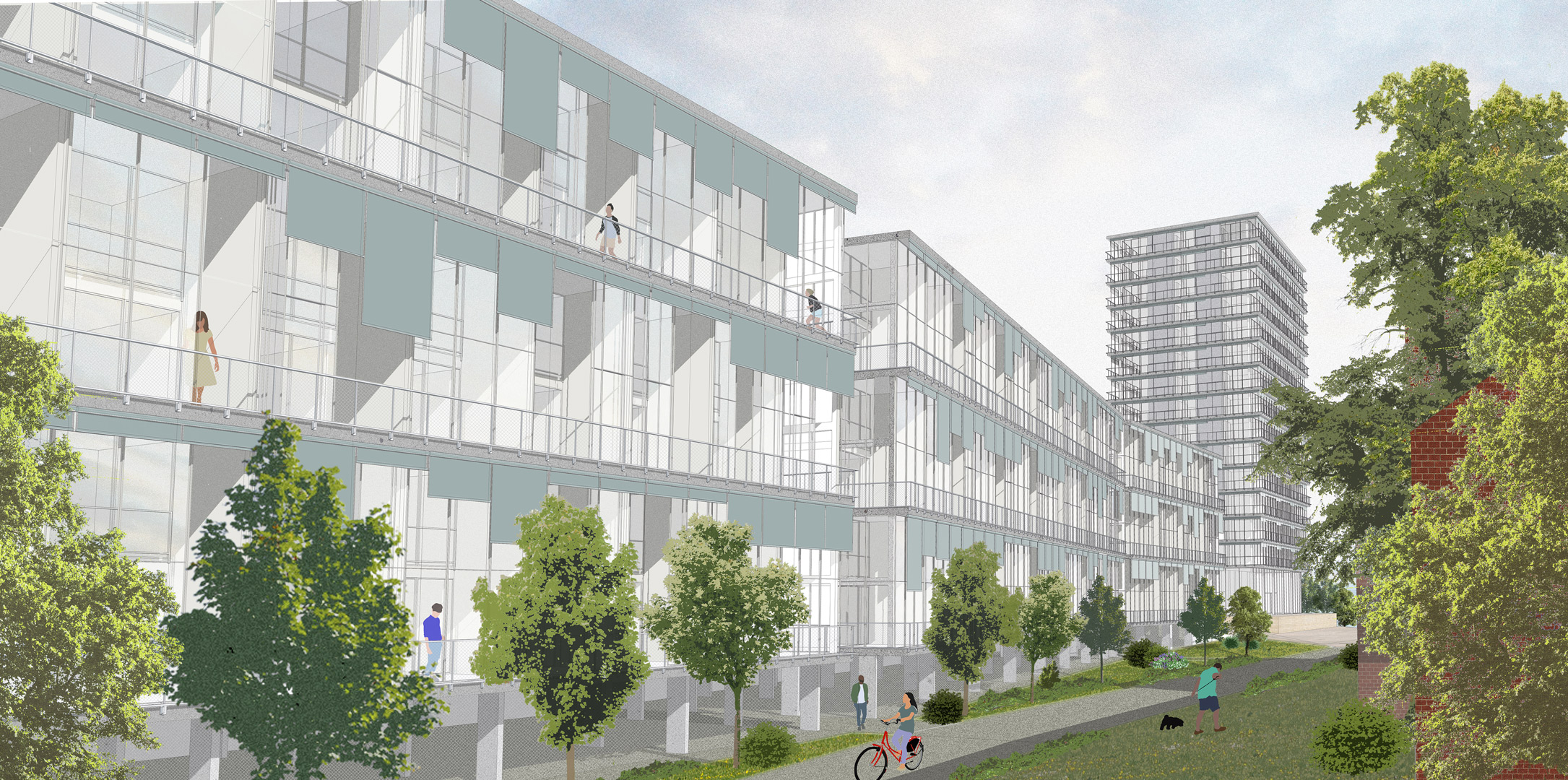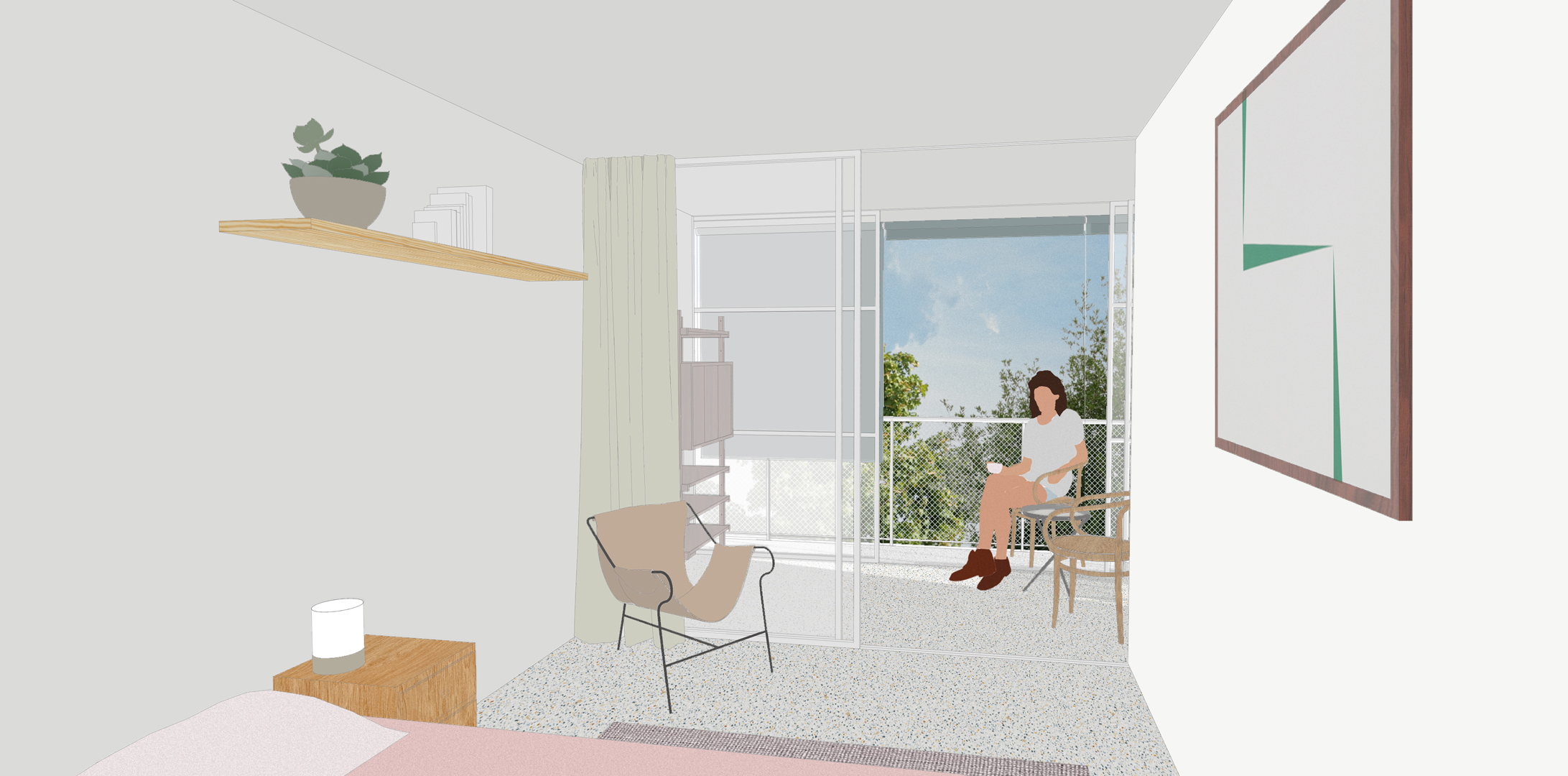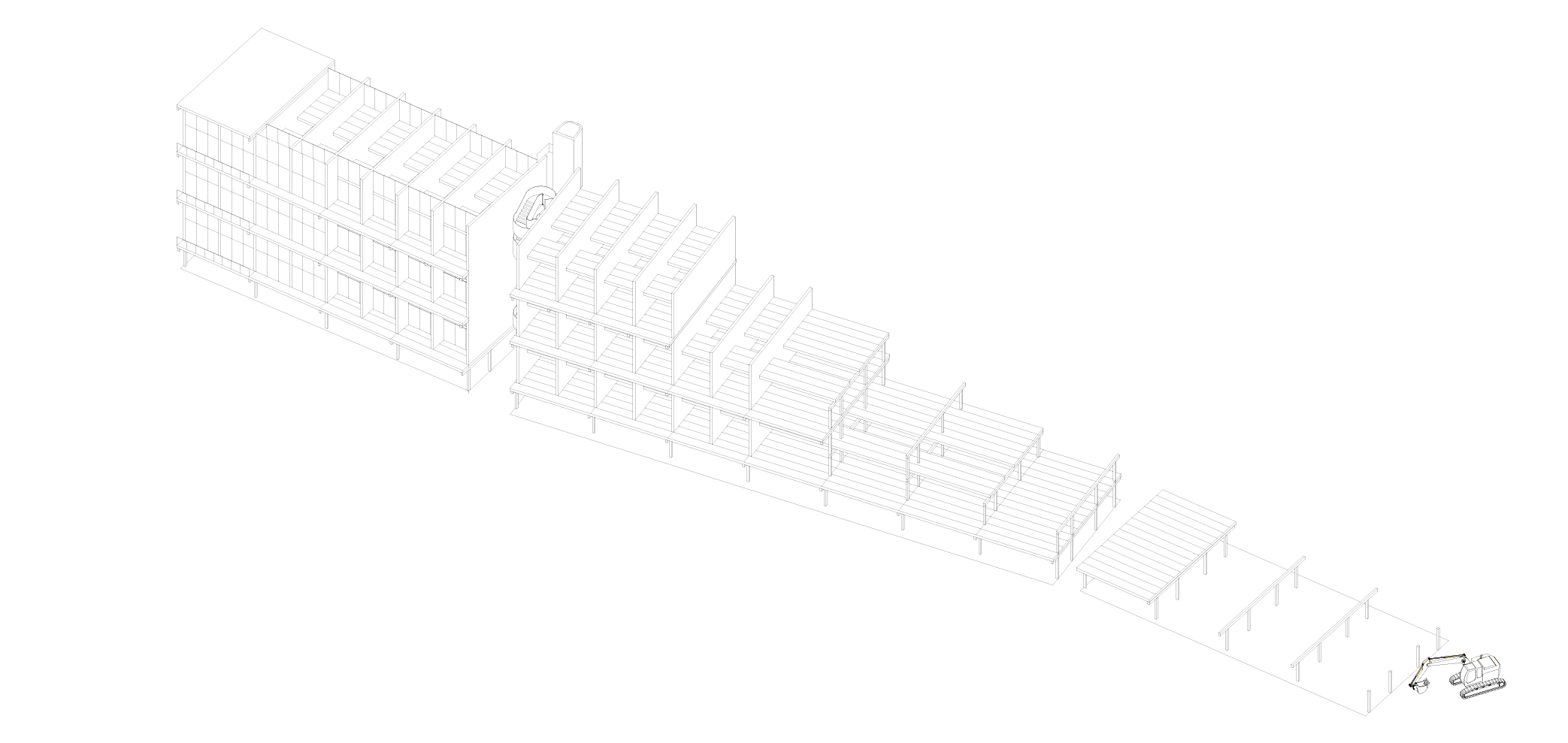
Concurso habitação colectiva Lordelo do Ouro
Concurso
de concepção para a execução de obras de construção de três edifícios de
habitação colectiva.
Porto,
Portugal, 2020
Arquitectos:
António Pedro Faria, Francisco Crisóstomo, Miguel Santos
Ano concurso: 2020
Localização:
Porto, Portugal
Entidade Organizadora:
Câmara Municipal Porto
A arquitectura tem um poder limitado, mas útil, de dar a quem a
habita as condições necessárias a uma boa vida. Estas condições constroem-se
através da resposta a princípios simples: integração na diversidade da vida
urbana; sociabilidade vicinal e garantia de privacidade; relação franca com o
exterior e controlo desta permeabilidade; iluminação natural dos espaços e
conforto térmico e acústico; salubridade e ventilação; atribuição de áreas
apropriadas às funções necessárias da vida doméstica; flexibilidade e
adaptabilidade consoante as circunstâncias; sustentabilidade e capacidade de
apropriação ao longo do tempo e por habitantes diferentes.
Imaginar, organizar e construir espaços para habitar é, e deverá ser sempre, um exercício de empatia – sem diferenciar entre estratos ou proveniências sociais e com a determinação de que os mesmos sistemas materiais e espaciais são úteis tanto em projectos de habitação dita social como em habitação privada ou de luxo. Não há formas radicalmente distintas, opostas ou excludentes de habitar, nem estas são determinadas apenas por critérios socialmente impostos.
Não existem, por outro lado, soluções universais de habitação, replicáveis indiferentemente às contingências e que precedam os contextos específicos. As formas de organização espaciais e tipológicas da habitação colectiva não são sempre inerentemente válidas ou inválidas, nem em absoluto, nem em abstrato.
A concretização destes princípios impõe-se à sociedade como tarefa política da habitação. Toda a habitação é social.
Architecture has a limited but useful power that is to contribute to people having the necessary conditions to a good life. These conditions are built by answering some simple principles: integration into the diversity of urban life; neighborhood sociability; open relationship with the outside; natural lighting, ventilation, thermal and acoustic comfort; allocation of needed areas for domestic life; flexibility and adaptability depending on circumstances; sustainability and appropriation ability over time and by different inhabitants.
Imagining, organizing and to building spaces to live is, and should always be, an exercise of empathy — without discrimination based on social background and with the conviction that the same systems, materials and spaces are useful both in the so-called social housing, as in the private or luxury one. There are no radically different, opposing or excluding ways of inhabiting, nor should these be determined solely by socially imposed criteria.
On the other hand, there are no universal housing solutions that can be replicated regardless of contingencies, and that precede specific contexts. The spatial and typological forms of organization of collective housing are not always inherently valid or invalid, neither in absolute terms nor in the abstract.
The implementation of these principles is imposed on society as a political task regarding housing. All housing is social.
Imaginar, organizar e construir espaços para habitar é, e deverá ser sempre, um exercício de empatia – sem diferenciar entre estratos ou proveniências sociais e com a determinação de que os mesmos sistemas materiais e espaciais são úteis tanto em projectos de habitação dita social como em habitação privada ou de luxo. Não há formas radicalmente distintas, opostas ou excludentes de habitar, nem estas são determinadas apenas por critérios socialmente impostos.
Não existem, por outro lado, soluções universais de habitação, replicáveis indiferentemente às contingências e que precedam os contextos específicos. As formas de organização espaciais e tipológicas da habitação colectiva não são sempre inerentemente válidas ou inválidas, nem em absoluto, nem em abstrato.
A concretização destes princípios impõe-se à sociedade como tarefa política da habitação. Toda a habitação é social.
Architecture has a limited but useful power that is to contribute to people having the necessary conditions to a good life. These conditions are built by answering some simple principles: integration into the diversity of urban life; neighborhood sociability; open relationship with the outside; natural lighting, ventilation, thermal and acoustic comfort; allocation of needed areas for domestic life; flexibility and adaptability depending on circumstances; sustainability and appropriation ability over time and by different inhabitants.
Imagining, organizing and to building spaces to live is, and should always be, an exercise of empathy — without discrimination based on social background and with the conviction that the same systems, materials and spaces are useful both in the so-called social housing, as in the private or luxury one. There are no radically different, opposing or excluding ways of inhabiting, nor should these be determined solely by socially imposed criteria.
On the other hand, there are no universal housing solutions that can be replicated regardless of contingencies, and that precede specific contexts. The spatial and typological forms of organization of collective housing are not always inherently valid or invalid, neither in absolute terms nor in the abstract.
The implementation of these principles is imposed on society as a political task regarding housing. All housing is social.



Planta Geral Piso 0 | Planta Geral Coberturas

Edifício A (panta tipo)






Alçado Poente — Alçado Sul — Corte edifícios A, B e C — Corte edifício B


Edifício B (panta tipo)

Edifício C (panta tipo)



Sistema Construtivo
